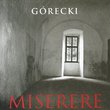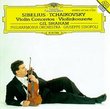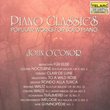| All Artists: Serge Bortkiewicz, Sergey Rachmaninov, Nils Franke Title: Bortkiewicz: Complete Works for Violin and Piano; Rachmaninov: Morceaux de salon, Op. 6 Members Wishing: 0 Total Copies: 0 Label: Warner Classics Release Date: 3/15/2005 Genre: Classical Styles: Chamber Music, Historical Periods, Classical (c.1770-1830), Instruments, Strings Number of Discs: 1 SwapaCD Credits: 1 UPC: 825646199020 |
Search - Serge Bortkiewicz, Sergey Rachmaninov, Nils Franke :: Bortkiewicz: Complete Works for Violin and Piano; Rachmaninov: Morceaux de salon, Op. 6
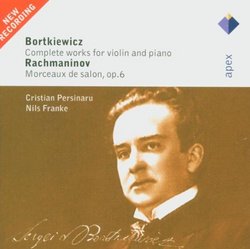 | Serge Bortkiewicz, Sergey Rachmaninov, Nils Franke Bortkiewicz: Complete Works for Violin and Piano; Rachmaninov: Morceaux de salon, Op. 6 Genre: Classical
|
Larger Image |
CD DetailsSimilarly Requested CDs
|
CD ReviewsThe feeling of nostalgia that never dims! David A. Hollingsworth | Washington, DC USA | 05/09/2005 (5 out of 5 stars) "The great thing about the Hyperion series of Bortkiewicz' works for pianoforte is the way they show us of just how much of a flair this once-forgotten composer has especially for the instrument (his violin writing is quite as fine here truth to tell). His Lamentations & Consolations, for instance, continue to grow on me, and I cannot find any of the masterpieces for piano especially of the Twentieth Century from which this set cannot measure up to. Having said that, his Violin Sonata (1924) offers much of what's expecting of him, even though it's not the best Bortkiewicz had written. The Russian Disc CD album featuring Medtner's First and Third (`Epic') Sonatas was purchased around the same time I acquired this one and I remember how blown away I was from the Epic Sonata. Medtner was a lofty idealist who never betrayed his Russian heritage (listen to the festive second movement & bear witness to the burning creative impulses that never dimmed).
So, why the comparisons? Bortkiewicz likewise never betrayed his heritage either (neither did Rachmaninov or even Glazunov for that matter). His Violin Sonata is a testament to that: the way the arresting slow beginning of the first movement gives way to ensuing development that have plenty of drama and passion that's within traditional lines. But his melodic invention doesn't quite measure up to Medtner's (there's some redundancy in that ensuing development that does not go quite far enough). With Medtner, you tend to expect the unexpected, but with Bortkiewicz' you sometimes tend to expect the expected, which may or may not be a good thing depending on one's reaction and point of view (yet his Lamentations and Consolations and even his Ten Preludes are delightfully surprising and innovative in ways the Sonata is not). The Andante is full of elegance and warmth, but even here there's something missing. And while the finale goes off well enough, I still wish that Bortkiewicz retain the innocent-sounding quiet passages to the very end rather than finishing it off with a sudden burst of energy (which quite frankly says something of less substance comparatively speaking). But, overall, the Violin Sonata is more than a memorable piece, even though Bortkiewicz could've still rise much more further than that (and he occasionally did). To me though, his Suite for Violin and Piano (1946) is altogether a finer piece. A much later yet considerably a much shorter score, his ability to reminiscence never fails to enrapture me. The Albumblatt in G is wonderful in that nostalgia it expresses: full of elegance and warmth as though it serves as a memorial to those lost during the Great War that just ended (and how fitting that as I was listening to the music, I was reading the New Times Article of Eisenman's Memorial to the Murdered Jews of Europe scheduled to be opened in Berlin on May 10th). The Albumblatt truly capture that atmosphere of painful yet necessary reckoning and admittance for our complacency, ignorance, fear, & hatred. However, the following waltz is more lighter in mood and is likewise lovable in its own way as is the meditation, which is one of the more sublime piece of music I've ever come across. The delightfully colorful Espana simply gets the mood `swingin' as do Bortkiewicz' Three Piano Pieces more or less (which are transcriptions for piano and violin from his earlier works). But how nice it is to have Rachmaninov's early Morceaux de salon (1893) serve as the conclusion to this otherwise enterprising album. This surprisingly overlooked piece gives us glimpses of the later Rachmaninov we grow to admire and adore; from the broody, melancholic romanticism of the first movement to the lively yet flamboyant mannerism of the second (with some wit and cockiness yes, but what a score nonetheless!). The playing of Cristian Persinaru and Nils Franke brings the scores to full glory. I like how meditative they are in the slow movements and yet allowing themselves much liberty and flamboyance in the more lively ones. They capture the personalities of the composers to perfection and I cannot find fault at all with their total commitment to and identity with the music. The recording sound is great (alive, reverberating, and realistic) while Ates Orga's booklet essay is captivating in its poignancy in arguing the case of the need to appreciate Borkiewicz even more. And with this additional disc now available, appreciating the musical art of the once-forgotten Ukrainian should continue here, and ideally, beyond." |

 Track Listings (12) - Disc #1
Track Listings (12) - Disc #1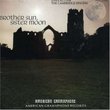

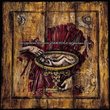


![Across The Universe [Deluxe Edition]](https://nationalbookswap.com/cd//m/51/1251/1241251.jpg)
